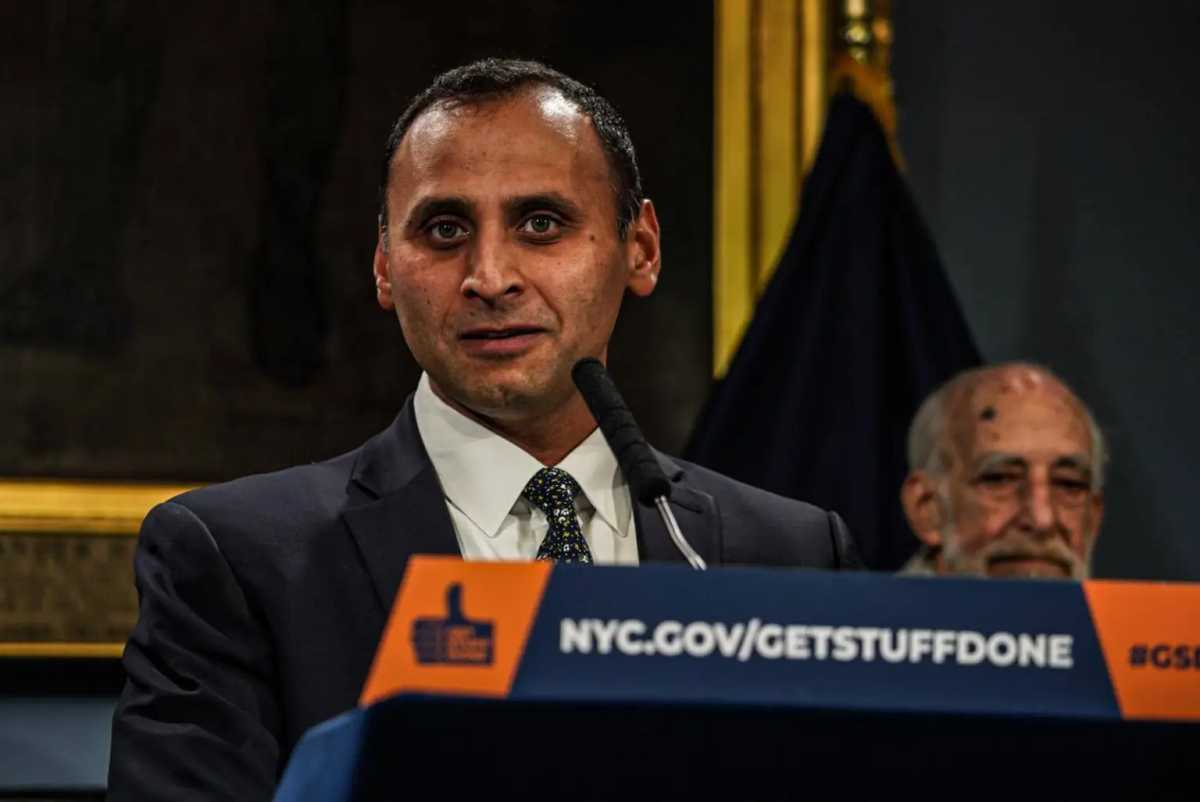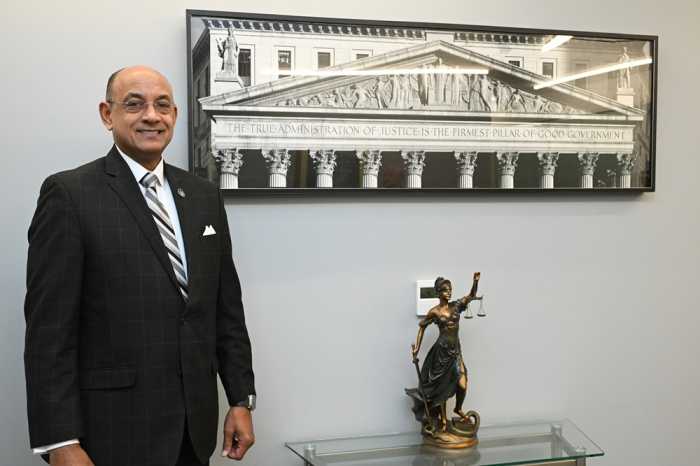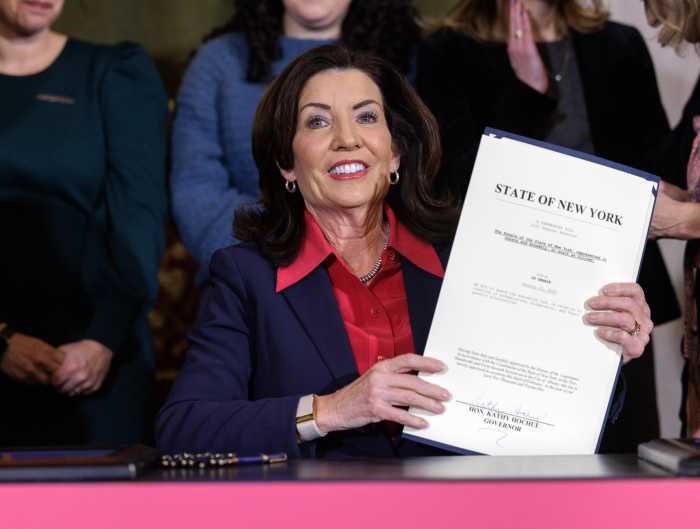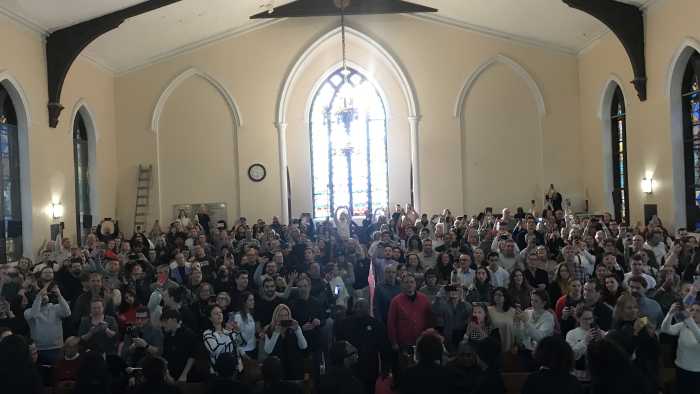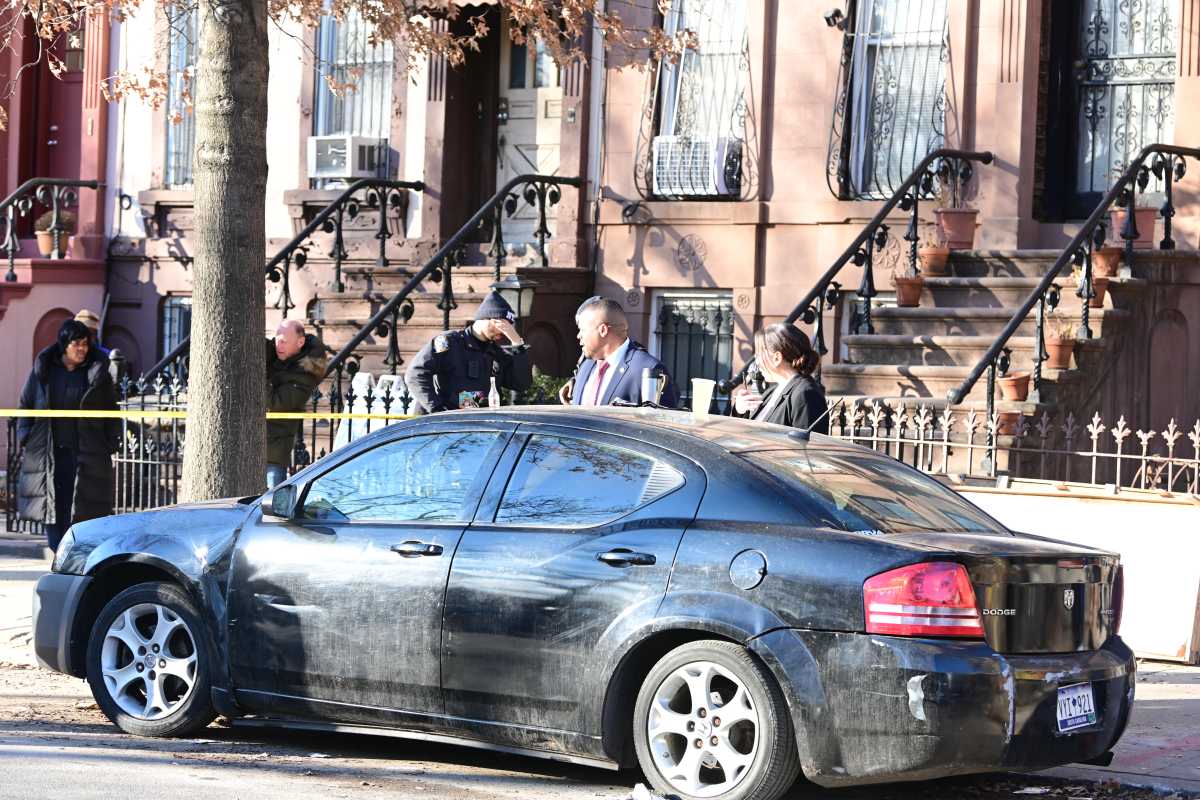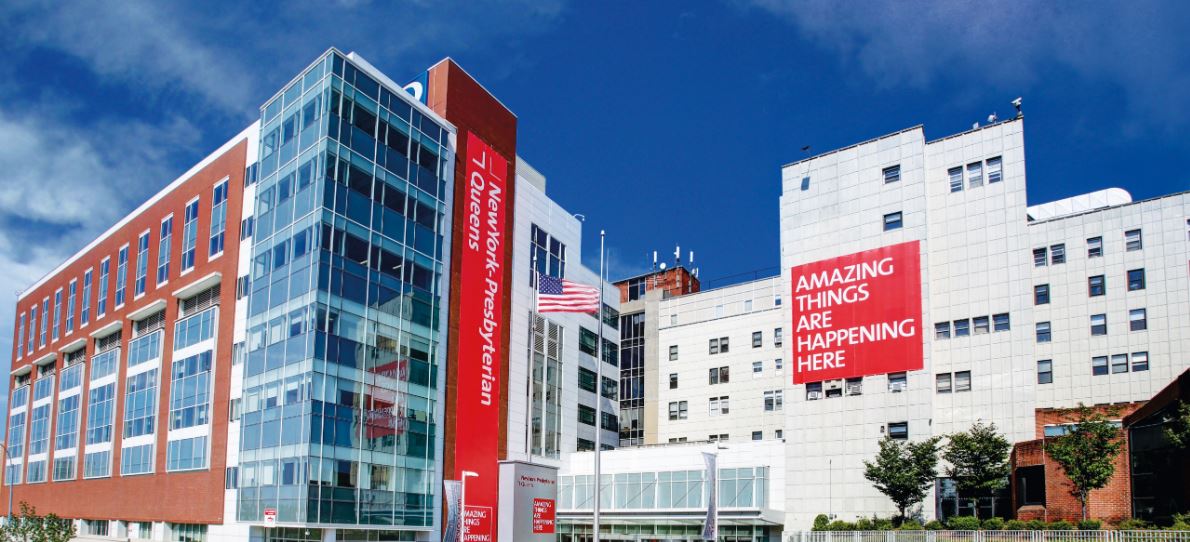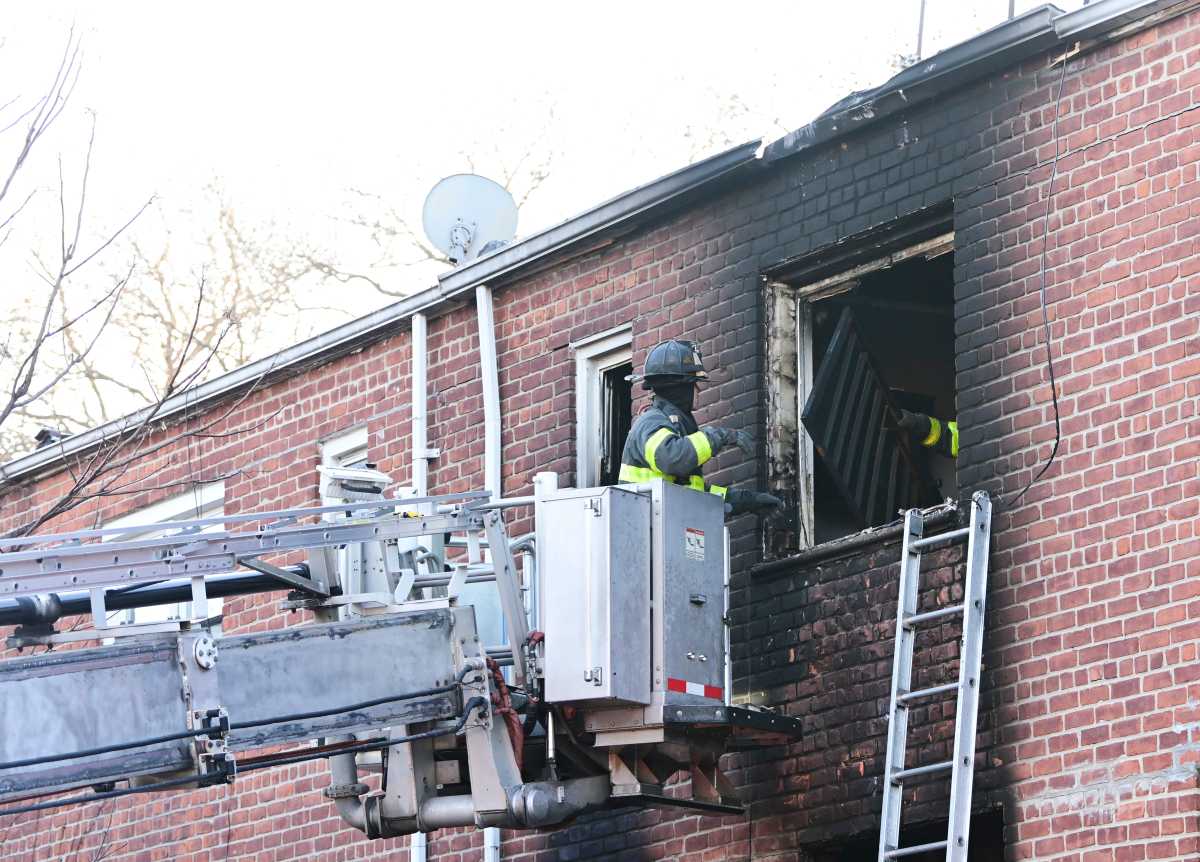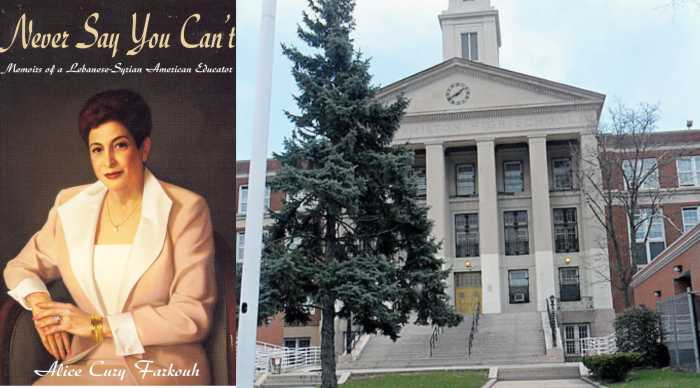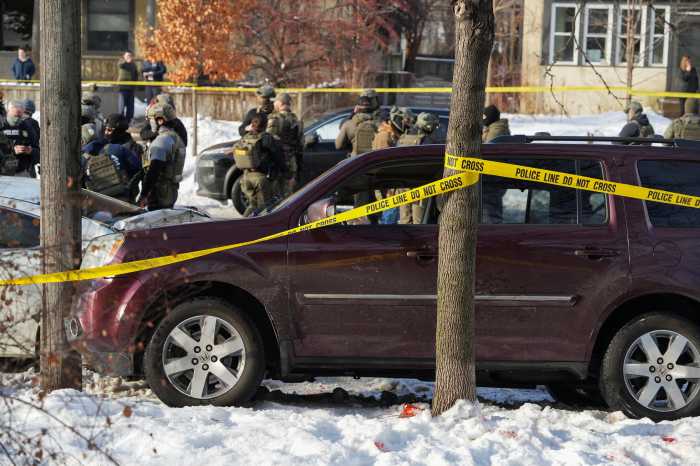Muhammad Faridi never seriously thought about a legal career until a chance encounter with a former president of Ireland. While working as a cab driver to pay his way through college in 2002, he picked up Mary Robinson, Irish politician and then-United Nations High Commissioner for Human Rights. Luck would have it that his cab got a flat on I-80 in New Jersey with Robinson in the back seat.
While installing a new tire, the two struck up a conversation about Faridi’s desire to serve New York City’s Muslim community in the wake of 9/11-era discrimination. “The best way to do that is to be a lawyer,” Faridi remembers Robinson saying.
At age 42, Faridi’s professional trajectory has catapulted him into the post as president of New York City Bar, where he serves as both the youngest and first Muslim-American leader of the organization. His career has allowed him to balance his curiosity about the world with his desire to change it. Now as bar president, he’s putting those two traits to work as he tries to broaden the reach of the bar association.
Faridi, who in May will complete one year of a two-year term, was elected in an era where bar association membership is down nationally. The City Bar is no exception. And while Faridi said the City Bar has had an easier time attracting junior lawyers than other bar groups, it’s important to pursue an agenda that will engage younger members.
Faridi’s three goals for his tenure are to foster timely and intellectually stimulating legal debates; transform the bar’s diversity equity and inclusion (DEI) practices; and advocate for state court reform, an effort that hinges on repealing the population-based constitutional cap on Supreme Court justices in order to address the shortage on the court’s bench.
The core functions of bar associations are still valuable, Faridi said, and the bar must make the case more forcefully that engaging in advocacy work, assessing judicial applicants, networking and taking positions on cases before our court are personally and professionally vital.
“We need to be more proactive in underscoring our value proposition to the new generation of lawyers,” Faridi said. Committee work is key to making the most of the organization, he said. “In my view, the best way to learn about an issue that you care about, and network with others in the same space, is by signing up to write a report or participate in a panel discussion,” he said.
Cutting-Edge Issues
In keeping with the bar’s tradition of fostering intellectual debate, Faridi said he wants to host a series of panels and podcast episodes on artificial intelligence. While many legal discussions question how AI will impact the profession, Faridi pointed to “more profound issues,” such as how to regulate AI that amplifies existing bias, or impedes human freedom and autonomy?
“How do you regulate AI that poses an existential threat?” he asked, suggesting that scholars and public intellectuals should be part of the discussion.
Despite DEI becoming a right-wing political target, Faridi said in his experience the “post-George Floyd” generation of lawyers are more sensitive to the racial and economic inequities in the U.S. Though racial diversity in the U.S. legal profession has gradually increased over the past decade, according to the American Bar Association, Black and Latino lawyers are still significantly underrepresented.
Faridi said it is important for the association to redouble its commitment to practices that, for instance, help advance people of color and women to partnership ranks.
“Lawyers are the ones who are driving a significant amount of policy change in the world,” Faridi said, yet “we are lagging relative to some of the other professions in diversity. Our profession should really reflect the cosmopolitan nature and the diversity across society at large.”
To this end, Faridi put two of the organization’s DEI committee co-chairs and one law student in charge of organizing a series of town halls on revamping the association’s practices. He suggested that the bar’s existing programs to promote career development and diversity “could reach even more people with the creation of a nationwide pipeline clearinghouse that would facilitate collaboration and information-sharing.”
This year will be momentous for Faridi’s legislative priorities. He is pushing the legislature to repeal a population-based cap that limits the number of judges in state Supreme Court. The City Bar released a report supporting a plan using a data driven evaluation of the state’s judicial needs that would point to where judicial resources are most needed. The legislature passed a bill that began this process last session, but since it would entail an amendment to the state constitution, the bill will need to pass in two successive legislative sessions before it can be placed on a ballot for consideration by voters.
Every Day a New Legal Challenge
Faridi’s curiosity also drives his practice in commercial litigation practice. “What I love about my job is that there is never a day or a week that goes by where I’m not learning about a different industry or a different area of the law,” he said.
Faridi attended John Jay College of Criminal Justice, and then City University of New York Law School, graduating in 2007. He clerked for Jack B. Weinstein, a Senior U.S. District Judge for the Eastern District of New York before entering private practice.
When Faridi joined Patterson, Belknap, Webb and Tyler LLP, he had zero background in finance before working for over a decade on residential mortgage-backed securities cases. Now he knows the ins and outs of the structured finance world. He didn’t have a background in economics before jumping into a recent antitrust case, or medical science before taking on a case involving general surgery robots.
“I have spent probably 15 to 20 hours watching YouTube videos on how the heart operates,” he said. “I’m learning about a technology that’s used to create and diagnose arrhythmia in the heart.”
Faridi just announced his move to Linklaters LLP, one of the five “Magic Circle” multinational law firms based out of London.
Faridi said he feels lucky to have landed in a career that allows him to flex research muscles while satisfying his idealism by handling pro bono cases. Now his time commitments have expanded even further as he takes on the task of reviewing every single release or report that the association makes — and he likes to make edits.
Faridi said he is a true believer in the bar association system. It was after all at a bar association event that Faridi met Adeel Mangi, his now-friend who convinced him to pursue a position at Patterson Belknap.
Growing up in the Brighton Beach area of Brooklyn after emigrating from Pakistan at age 12, Faridi thought that he would hang “my own shingle down on Coney Island Avenue” in a general practice that served the neighborhood. Now he channels that drive to be of service into his work on behalf of a number of pro bono clients in cases involving religious or racial discrimination.
Faridi is representing several Iraqi citizens who allege they experienced violations of international law when they were held at Abu Ghraib and the family of a Black man who was killed in a police shooting in Rochester.
“I’ve also represented a class of homeless and runaway children in a lawsuit seeking the right to shelter in New York City. And a class of children with disabilities in New Orleans seeking essential educational services guaranteed by our country’s laws,” Faridi said. “These were all meaningful cases that have helped define my career and view of the world.”
The complaints that he’s heard from young lawyers is that bar associations’ advocacy efforts can get bogged down by bureaucratic hurdles to be timely, but he feels that the City Bar is an outlier in this respect.
“We are much more nimble than our peers,” Faridi said. “If you look at statements and the reports that we have issued on law issues in the last five or eight years, we react with a sense of urgency. And we are usually at the forefront of these issues — at the cutting edge.”
Read More: https://www.amny.com/law/



